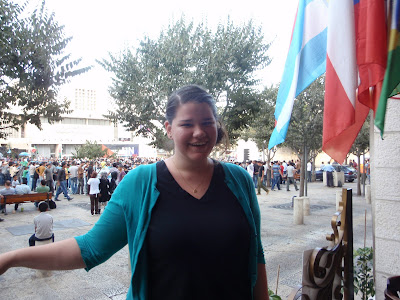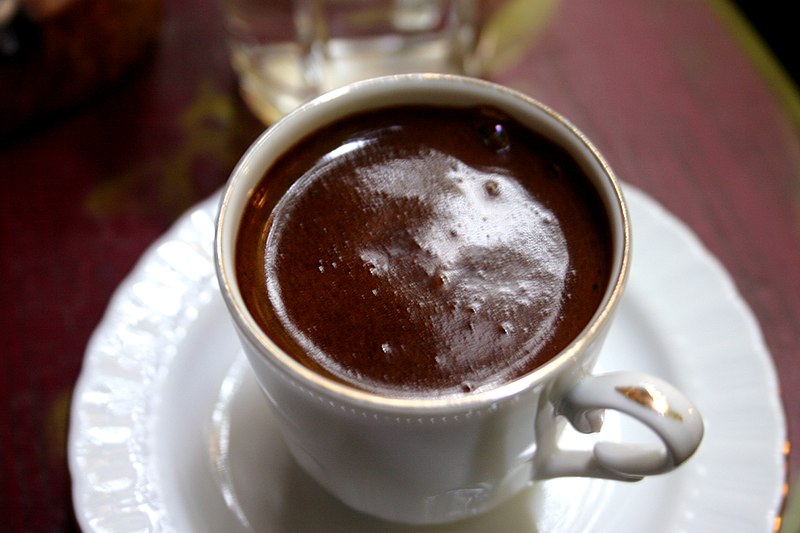 |
Graffiti on the Israeli separation wall dividing Bethlehem.
(photo by Ryan Rodrick Beiler)
|
The over 60% unemployment rate in Bethlehem means that two out of three people cannot find work. It means that there are families who are suffering, children who are hungry, men and women who are struggling to keep their electricity on or to pay their medical bills.
When I first moved into my new home, I discovered that my town had been without water for ten days. Families were using the last of their stores, and the situation was becoming desperate. People were unable to wash their clothes, bathe, or clean their homes. You can buy bottles of water but that gets expensive very quickly, and those bottles can only go so far.
In our little town of Bethlehem, there is a constant military presence, which only heightens people's fear and paranoia; there always seems to be this sense of impending doom. I walk by clusters of 18 year olds with uniforms and machine guns, and my heart breaks for these children who are learning the most efficient ways to kill their neighbors instead of learning about math and music and art. How far have we fallen if we're teaching bombing instead of blessing?
After reading the above paragraphs, it would be easy to understand if people here had completely given up, if everyone just wallowed in misery and wasted away, but that is not at all what I've found. In fact, the overall attitude I've seen here has completely shocked me, because the overwhelming attitude here is one of hope.
The resilience and faith and hope of these people is humbling. The Christian community that I am connected with is inspiring. People seem to wake up every morning full of peace, confident that God will provide for them. He provided yesterday, and He will provide today. Every morning before the work day begins, we worship together, we pray for those who are struggling, and we ask God to use us to bless each other. And He gives us plenty of opportunities.
We watch children so that their parents can go to the doctor. We give each other rides when cars break down or when people simply don't have enough money for the taxi fare that day. We do laundry for those who have run out of water. We make sure that everyone is fed, without injuring their pride, by inviting those who are struggling over for a big dinner (where we insist that they take the leftovers home because we simply have no room in our kitchen). We go without the extras so that we can chip in to help friends with seemingly insurmountable bills. We rejoice over births and first days of school. We hug and kiss our children, and our friends' children, and strangers' children, because each child is a gift directly from God. We visit those who are sick, and when someone dies, we surround their family with love and support. We celebrate together, and we mourn together.
And I use the term "we" very loosely. I mostly watch in awe of the way that my neighbors take care of each other, and of how they freely give of their time and resources to help those in need. These people are essentially being Christ to one another. It seems to me that instead of breaking them, the injustice and tragedy that they have each experienced has strengthened their faith and their love for each other. No one has much to spare, but what little they do have is used to help everyone else stay afloat. I have to believe that just as Jesus praised the widow who gave all she had in Luke 21, he is praising these people who sometimes give all they have to help their neighbor. I have no doubt that God takes these seemingly tiny offerings and transforms them into something amazing.
As a Westerner, I feel so incredibly honored to be living and working alongside Palestinian Christians who are truly living out what it means to follow Jesus. I have so much to learn about community, loving my neighbor as myself, faith, endurance, and life in general, and I can't imagine better teachers than the ones that I have here in the West Bank.
Note: A slightly more politically correct version of my post is crossposted here on the MCC Palestine blog. If you'd like more info about what MCC Palestine does and who they work with, their blog is a great place to start!







